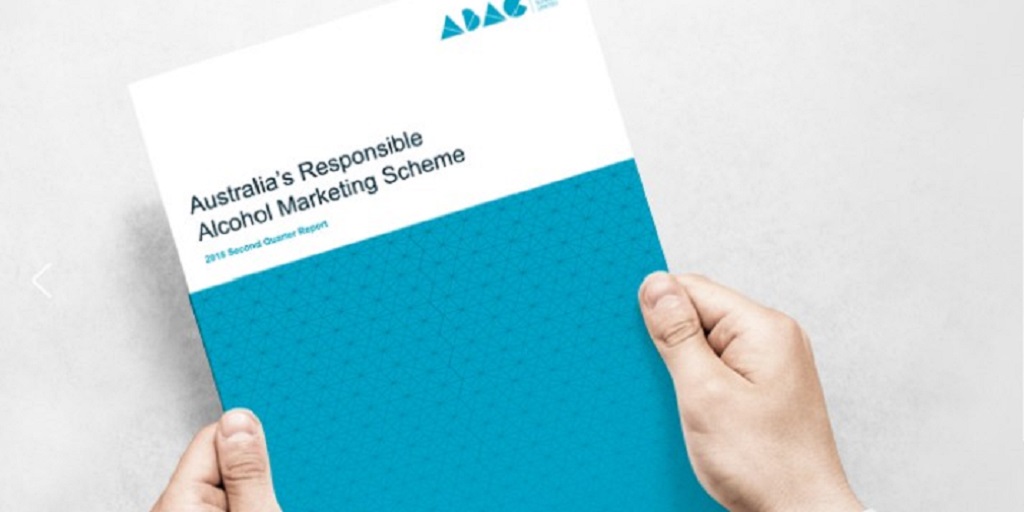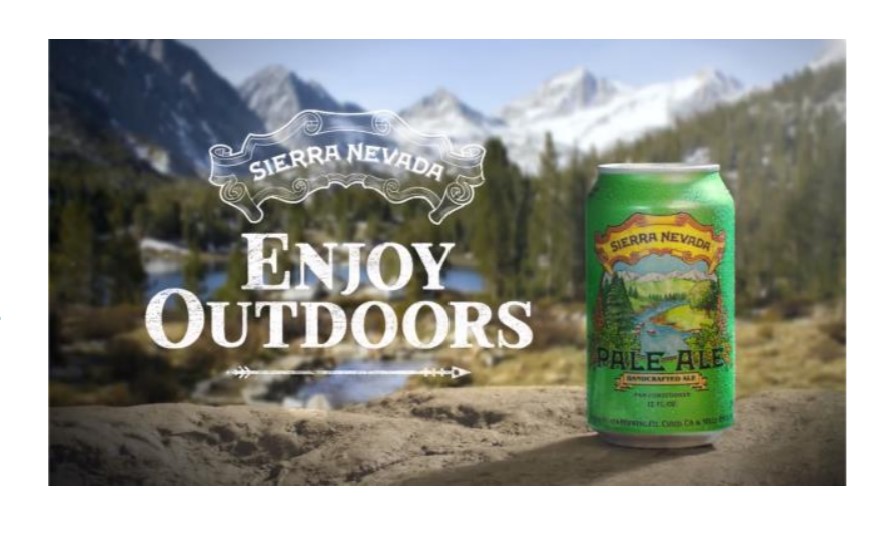
TV ads, billboard and social media in front of ABAC

A series of beer marketing communications have faced an ABAC panel after wide-ranging complaints as the alcohol advertising watchdog launches its latest quarterly report.
In ABAC’s latest report, it suggested that complaints remain high in the first quarter of 2021 after a record level of complaints in 2020. 24 determinations were made, with 11 upheld, 12 dismissed and one considered a ‘no-fault’ breach.
“Breaches this quarter related primarily to social media posts, with two relating to packaging, two relating to placement and one relating to a branded giveaway,” ABAC said.
“The most common breaches of Code standards this quarter related to depictions of alcohol use in conjunction with swimming pools and suggestions that alcohol has some sort of therapeutic benefit.”
ABAC highlighted the fact that all marketers cooperated with its processes and removed marketing found to be inconsistent with its standards. In its efforts to help educate the industry, it said, it has introduced free online certified courses to the industry which “will significantly assist marketers avoid Code breaches and demonstrate their commitment to responsible alcohol marketing”.
The latest round of complaints come after a recent revelatory release from the Cancer Council in a report into ABAC’s handling of pandemic-related marketing complaints. During its attempts to critique the ABAC system, it revealed that a majority of the complaints made against pandemic-related marketing were in fact submitted by current employees of the Cancer Council or their coworkers.
Great Northern
A complaint about the ubiquitous Great Northern “The Beer for Up Here” outdoor billboard advertisements has been put before an ABAC panel.
The complainant argued that the ad contravenes the ABAC provision which prevents adverts showing consumption of alcohol before or during any activity that requires a high degree of alertness or physical coordination.
They said that alcohol should not be promoted on the basis of its consumption occurring during activities like hiking, which they argued the Great Northern ad depicted.
Asahi responded saying that the advertisement had in fact been reviewed by the ABAC pre-vetting service. It argued that the advert doesn’t show or imply that alcohol is being consumed during any activity that requires and that hiking is not necessarily an activity that requires a “high degree of alertness or physical coordination”.
The company suggested that the “beer for up here” slogan was not related to the specific image depicted of hikers sitting on a boulder, but was “well understood” by customers as a reference to the Great Northern Brewery established in Cairns in 1927.
“We are confident that all possible care has been taken to ensure this image represents the Far North Queensland landscape and lifestyle, without infringing on Part 3(d) of the Code,” it said.
Ultimately, the ABAC adjudication panel agreed. It decided that ABAC does not prohibit alcohol being associated with the outdoors generally or hiking in particular. The panel said the scene does not show or reasonably imply alcohol consumption, and dismissed the complaint.
Expedited decisions
Expedited determinations were brought in by ABAC in June 2020 in response to higher complaint and breach levels.
Adjudicators can determine that complaints should be expedited if there is a clear breach or the marketing communication complaint does not raise issues of broader significance to the understanding of the code.
In one of its latest expedited determinations, SA pioneer Brewboys Brewery faced a complaint regarding an Instagram post showing a man challenged to “straight arm” – drinking an entire beer with a straight arm.
The complainant argued that this promotes excessive or rapid consumption of beer. As a result, Brewboys confirmed that it had accepted the breach and removed the photo from all of its platforms.
In another expedited determination, an Instagram post for Capital Brewing Co.’s Trail Pale Ale was up against the panel for featuring a Trail Pale Ale in the hand of a semi-submerged person.
Capital confirmed they had accepted the breach for showing consumption during an activity requiring a high degree or alertness and physical coordination, and removed the photo from its platforms.
Mighty Craft-owned seltzer brand Nosh was also on the receiving end of an expedited complaint after showing the product superimposed onto a scene from the 2004 film Mean Girls.
The ABAC panel ruled that showing what were supposed to be 16-year-old girls with alcohol in the Instagram post broke its rules about appealing to minors and depicting minors drinking alcohol. The company accepted the breach and took down the posts.
Heineken and James Squire
In another determination on advert placement during on-demand television programming, a complainant argued that adverts for Heineken and James Squire Broken Shackles were being shown during ‘business hours’.
The unnamed complainant said that the adverts were being shown during programs in the Kids category on 10 Play, arguing that they were inappropriate for the age of the viewer that the Channel 10 programs were for.
The ABAC Code determines that alcohol marketing communications should not be directed at minors through the breach of placement rules.
Lion responded by saying it reiterated its commitment to the ABAC Scheme, but asked that in this instance the complaint should be deemed a no-fault breach by the panel.
The brewer explained that whilst all advertising booked with Network 10 and 10 Play had age gating, a “human error” occurred at Network 10 in the coding applied to Blue’s Clues during which the advertisements were featured.
“Following an extensive investigation by Network 10, it has taken all necessary steps to ensure this error cannot be made again,” it said.
The panel said it was evident that a breach of ABAC placement rules had occurred. It reiterated these rules, saying that age restriction controls should be in place, but where this was not possible, audiences should be expected to comprise 75 per cent adults, and should never be placed within programmes aimed primarily at minors.
The ABAC panel recognised that there was a fundamental limitation with age restriction controls on streaming and on-demand platforms, as the account holder is usually a parent or adult and children may watch programs from a single account
“This co-viewership pattern means that the impact of the age restriction control is marginal in actually excluding minors from the audience of alcohol ads,” it said.
The panel ultimately said that the majority of the program’s audience were under 18 and therefore a breach had been made, but it accepted a no-fault finding due to the circumstances.
Sierra Nevada
 In a ruling earlier this year, US brand Sierra Nevada Pale Ale was on was the subject of a complaint about a television commercial.
In a ruling earlier this year, US brand Sierra Nevada Pale Ale was on was the subject of a complaint about a television commercial.
In the commercial, an unopened box of Sierra Nevada is shown, followed by people jumping into a lake where there are others swimming.
The complainant argued that drinking alcohol whilst swimming “is known to increase the risk of drowning”. They argued that the ad promotes risk-taking behaviour whilst swimming, jumping off a small cliff into a waterhole and swimming.
Sierra Nevada importer Phoenix Beer responded to the complaint saying that the ad does not encourage drinking and swimming, as no cans are depicted as opened and none are being drunk or held by participants in the water.
The ABAC panel said that it makes its determinations from the standpoint of what the probably understanding of the advert by a reasonable person would be.
It ruled that it did not deem the advert to be a breach of any of its standards, adding that a reasonable person would assume that the beer might be consumed later in the day after swimming has finished. It dismissed the complaint.
Beach Beer Bondi
An Instagram post featuring a woman in a pool, floating in an inflatable with a beer in hand was criticised by a complainant for showing alcohol consumption during swimming, which they said was a high-risk behaviour.
The Instagram post was published on 27th December 2019, marking a return of complaints concerning historical marketing communications.
The company responded saying that the posts were removed well before responding to the complaint.
“We believe ABAC is a necessary regulatory body and helps upheld [sic] community values,” they said.
The ABAC adjudication acknowledged that while the woman was not physically drinking alcohol in the pool, there is a reasonable implication that it might be being consumed in the pool, and upheld the complaint.



